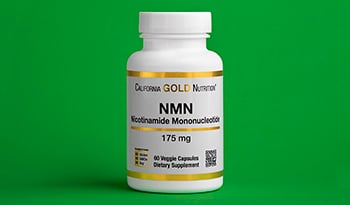Svampetilskud: Fortiden Og Fremtiden For Moderne Wellness

Overalt hvor jeg vender mig - uanset om det er podcasts, forskningsjournaler eller wellness-udstillinger - taler folk om svampe. Ikke knapsvampe, som du måske finder på pizza, men adaptogene kraftværker som Reishi, Cordycepsog Lion's Mane.
Hvorfor er svampetilskud populære?
Flere og flere mennesker leder efter naturlige, holistiske måder at understøtte energi, immunitet, mental klarhed og modstandsdygtighed på uden at nå efter syntetiske løsninger eller overstimulerende hurtige løsninger. Vi erkender endelig, at naturen ikke kun er en mulighed for velvære - det er planen. Og når det kommer til svampe, er den plan tusinder af år gammel.
Historie om funktionelle svampe
Funktionelle svampe er blevet brugt i traditionelle medicinsystemer som traditionel kinesisk medicin (TCM) og ayurveda i århundreder. I disse systemer var svampe ikke kosttilskud; de blev æret som tonika for vitalitet og lang levetid.
Reishi
I Kina kaldes G. lucidum lingzhi, hvorimod Ganodermataceae-familien i Japan er navnet reishi. Denne svamp var så værdsat i det gamle Kina, at den ofte var forbeholdt kongelige for at fremme sundhed og forlænge livet. Det er kendt som „udødelighedens svamp“, ikke kun for sit poetiske navn, men for dets adaptogene evne til at hjælpe kroppen med at tilpasse sig stress, genoprette balance og understøtte dyb immunfunktion.
Cordyceps
Så er der Cordyceps, udholdenhedsforstærkeren. Brugt af både beboere i høj højde og eliteatleter, er det kendt for at understøtte iltoptagelse, atletisk præstation og cellulær energi. Det er fantastisk til brug i perioder med høj stress og tung træning, og resultaterne er altid de samme: mere udholdenhed, mindre udbrændthed.
Løvens manke
Lion's Mane er måske et af de mest spændende indlæg i svampesamtalen i dag. Forskning viser, at det kan understøtte neurogenese, hukommelse og kognitiv klarhed. I en tidsalder med overbelastning af information og stigende kognitive krav vinder naturlige nootropika som Lion's Mane plads med god grund.
Hvad elsker jeg mest? Disse svampe tvinger ikke din krop til at gøre noget. De skubber det forsigtigt tilbage i balance og understøtter dit system i stedet for at tilsidesætte det. Det er forskellen mellem syntetiske stimulanser og plante (eller i dette tilfælde svampe) visdom. Den ene behandler symptomer; den anden genopretter harmoni.
Fordele ved svampetilskud
Vi lever i en tid, hvor stress, betændelse og immundysfunktion er på et rekordhøjt niveau. Folk er udmattede, ikke kun fysisk, men mentalt og følelsesmæssigt. De leder efter bæredygtige måder at genvinde energi og modstandsdygtighed på. Og funktionelle svampe opfylder det øjeblik perfekt.
De er ikke-vanedannende, blide og utroligt alsidige. Uanset om du leder efter bedre fokus, dybere søvn, immunforsvar eller bare lidt mere udholdenhed for at komme igennem din dag, er der en svamp, der er blevet undersøgt, brugt og bevist gennem generationer.
Og den bedste del? De er adaptogener, hvilket betyder, at de hjælper din krop med at tilpasse sig fysiske, følelsesmæssige og miljømæssige stressfaktorer. Denne evne til at tilpasse sig er noget, vi alle har brug for mere af, uanset hvor vi er på vores wellness-rejse.
Svampe til humør og mental klarhed
Visse funktionelle svampe - som Lion's Mane, Reishi og Cordyceps-har vist lovende effekter til at understøtte neuroplasticitet og humørregulering. For eksempel indeholder Lion's Mane Mushroom forbindelser, der stimulerer nervevækstfaktor (NGF), som spiller en nøglerolle i vækst og reparation af neuroner. Dette kan forbedre kognitiv funktion og understøtte hjernens evne til at omkoble sig selv, øge hukommelse, fokus og følelsesmæssig modstandsdygtighed. I mellemtiden fungerer Reishi og Cordyceps som adaptogener, der hjælper kroppen og hjernen med at tilpasse sig stress, mens de reducerer cortisolniveauer. Sammen kan disse svampe hjælpe med at forbedre søvn, lette angst og understøtte et mere afbalanceret humør - alt sammen samtidig med at de fremmer hjernens naturlige plasticitet. Når de tages konsekvent som en del af en wellness-rutine, kan svampe blive magtfulde allierede til at støtte mental klarhed, følelsesmæssigt velvære og hjernesundhed.
Svampe Er Rige På Næringsstoffer
Svampe er måske kalorifattige, men de har en ernæringsmæssig kraft. De er en fremragende kilde til essentielle vitaminer og mineraler, herunder D-vitamin, B-vitaminer, selen, kobber og kalium, hvilket gør dem rige på antioxidanter. Moderne diæter mangler ofte D-vitamin, hvilket er mindre end ideelt, da D-vitamin spiller en afgørende rolle i knoglesundhed og immunfunktion. Især for mennesker, der har begrænset soleksponering, giver svampe det essentielle D-vitamin, samtidig med at det hjælper med et godt kolesterolhelbred.
Sådan starter du din svamperejse
Du behøver ikke tage fem typer på én gang. Vælg et pålideligt produkt med velhentede ingredienser, og giv din krop tid til at tilpasse sig. Svampe er subtile, men kraftfulde. Deres virkninger er kumulative og bygger sig ofte over dage eller uger; tænk på dem som ernæringsmeditation snarere end et ryk af koffein.
Takeaway
Verden vågner op til, hvad gamle urtelæger allerede vidste: svampe er medicin. Uanset om du ønsker at booste din hjerne, lindre stress eller styrke dit immunsystem, tilbyder funktionelle svampe naturlig, plantebaseret støtte med videnskab til at bakke det op. Svampe vokser i skyggerne og nedbryder stille det gamle for at gøre plads til nyt liv. De er naturens genvindere, konnektorer og healere. Er det ikke det, vi alle prøver at gøre på et eller andet niveau - kaste støjen, genoprette forbindelse til os selv og helbrede indefra og ud?
Svarene har altid været i naturen. Vi skal bare huske at kigge.
Hvis du er nysgerrig efter svampe, så tag det som et tegn: nu er det perfekte tidspunkt at udforske, hvad disse gamle allierede kan gøre for dit moderne liv. Start i det små, bliv konsekvent, og læg mærke til, hvordan din krop reagerer. Naturen har altid leveret det, vi har brug for - vi skal bare huske at stole på det. Uanset om det er mere fokus, bedre immunitet eller dybere hvile, er der en svamp til det. Og vi er her for at hjælpe dig med at finde det.
Referencer:
- Wachtel-Galor, S. og Benzie, I.F.F. (2011). Ganoderma lucidum (Lingzhi) i kræftbehandling. I urtemedicin: Biomolekylære og kliniske aspekter. 2. udgave. CRC Tryk. https://www.ncbi.nlm.nih.gov/books/NBK92757/
- Gao, Y., et al. (2004). Antitumor og immunmodulerende aktivitet af polysaccharid-proteinkompleks fra Ganoderma lucidum. International Journal of Cancer, 113 (1), 104—110. (https://onlinelibrary.wiley.com/doi/10.1002/ijc.20657)
- Chen, S., et al. (2010). Cordyceps sinensis: en skat af funktionelle fødevarer. Tidsskrift for komplementær og integrativ medicin, 7 (1). (https://pmc.ncbi.nlm.nih.gov/articles/PMC7104994/)
- Zhou, X., et al. (2009). Cordyceps svampe: naturlige produkter, farmakologiske funktioner og udviklingsprodukter. Tidsskrift for farmaci og farmakologi, 61 (3), 279—291. (https://onlinelibrary.wiley.com/doi/full/10.1211/jpp.61.03.0001)
- Mori, K., et al. (2009). Stimulerende virkninger af Hericium erinaceus på syntese af nervevækstfaktor (NGF) af humane astrocytomceller. Biomedicinsk forskning, 30 (5), 263—267. (https://pmc.ncbi.nlm.nih.gov/articles/PMC10650066/#:~:text=erinaceus%20induces%20the%20synthesis%20of,Neurotrophins)
- Zhang, Z., et al. (2016). Hericium erinaceus (Yamabushitake) forbedrer mild kognitiv svækkelse: et dobbeltblindt placebokontrolleret klinisk forsøg. Fytoterapiforskning, 30 (12), 1809—1815. (https://www.researchgate.net/publication/23308681_Improving_Effects_of_the_Mushroom_Yamabushitake_Hericium_erinaceus_on_Mild_Cognitive_Impairment_A_Double-blind_Placebo-controlled_Clinical_Trial)
- Panossian, A. og Wikman, G. (2010). Virkninger af adaptogener på centralnervesystemet og de molekylære mekanismer forbundet med deres stressbeskyttende aktivitet. Lægemidler, 3 (1), 188—224. (https://www.mdpi.com/1424-8247/3/1/188)
- Wasser, S.P. (2011). Nuværende fund, fremtidige tendenser og uløste problemer i undersøgelser af medicinske svampe. Anvendt mikrobiologi og bioteknologi, 89, 1323—1332. (https://pubmed.ncbi.nlm.nih.gov/21190105/#:~:text=Abstract,immune%20cells%20in%20the%20host.)
- Lindequist, U., Niedermeyer, T.H.J., & Jülich, W.D. (2005). Svampens farmakologiske potentiale. Evidensbaseret komplementær og alternativ medicin, 2 (3), 285—299. https://onlinelibrary.wiley.com/doi/10.1093/ecam/neh107
- Simon, R.R., et al. (2011). D-vitaminsvampe: sammenligning af sammensætningen af vitamin D-berigede svampe fra detailhandel og kontrollerede miljøer. Tidsskrift for landbrugs- og fødevarekemi, 59 (16), 8724—8730. https://pubmed.ncbi.nlm.nih.gov/21736377/
ANSVARSFRASKRIVELSE: Wellness Hub har ikke til hensigt at stille diagnoser...

















































































 Indholdsfortegnelse
Indholdsfortegnelse














